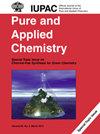公众对低剂量辐射(LDR)和电力生产的认识、情绪和看法,特别是对反应堆事故的认识、情绪和看法
IF 2
4区 化学
Q3 CHEMISTRY, MULTIDISCIPLINARY
引用次数: 0
摘要
人们对辐射的看法为核电生产决策提供了依据。关于人们对辐射的看法,包括对福岛和切尔诺贝利核事件的看法,已有大量研究。本文报告了一项社会科学文献综述研究,关注公众对低剂量辐射(LDR)和核设施的反应,尤其是在海洋环境中。该综述证实,对辐射知之甚少的人对核电的风险认知度最高;相反,知识面较广的人对核电的风险认知度较低,对核电更为青睐。教育可以提高人们的积极认知,但潜在的感觉、情感、依恋或情绪体验的影响可能会削弱这种效果。本文报告的研究记录了日本社会对福岛核事故的焦虑。本文还介绍了与所释放的特定放射性核素有关的文献。虽然低放辐射照射对健康的影响存在不确定性,但公众的态度并不一致。核专业人员与科学家之间需要更好的对话,以取得更好的核教育和公众沟通成果;需要围绕核电站灾难释放的多同位素和多元素进行更具体的沟通。值得信赖的沟通者应包括核科学家、社会科学家以及监管者。鉴于气候变化背景下去碳化的重要性,这一点变得越来越重要。本文章由计算机程序翻译,如有差异,请以英文原文为准。
Public knowledge, sentiments, and perceptions of low dose radiation (LDR) and power production, with special reference to reactor accidents
People’s perceptions concerning radiation inform decision making in relation to nuclear power production. There have been extensive studies of people’s perceptions of radiation including in relation to the Fukushima and Chernobyl nuclear events. This paper reports on a social science literature review study and is concerned with public responses to low dose radiation (LDR) and nuclear facilities, particularly in the marine environment. This review confirms that people with little knowledge about radiation have the highest risk perceptions in relation to nuclear power; conversely people with a broader knowledge have lower risk perceptions and are more favourable to nuclear power. Education can increase positive perceptions, but the influence of underlying experience of feeling, emotion, attachment, or mood may dampen this effect. This paper reports studies which document anxiety within the Japanese community in relation to the Fukushima nuclear accident. Literature concerning specific radionuclides released is described. While there are uncertainties about the presence of health impacts following LDR exposures, public attitudes are not in line. There is a need for better dialogue between nuclear professionals and scientists to achieve better nuclear education and public communication outcomes; more specific communication surrounding multi-isotopes, and multi-elements of nuclear power plant disaster releases is warranted. Trusted communicators should include nuclear and social scientists as well as regulators. Given the importance of decarbonization in the context of climate change, this is increasingly important.
求助全文
通过发布文献求助,成功后即可免费获取论文全文。
去求助
来源期刊

Pure and Applied Chemistry
化学-化学综合
CiteScore
4.00
自引率
0.00%
发文量
60
审稿时长
3-8 weeks
期刊介绍:
Pure and Applied Chemistry is the official monthly Journal of IUPAC, with responsibility for publishing works arising from those international scientific events and projects that are sponsored and undertaken by the Union. The policy is to publish highly topical and credible works at the forefront of all aspects of pure and applied chemistry, and the attendant goal is to promote widespread acceptance of the Journal as an authoritative and indispensable holding in academic and institutional libraries.
 求助内容:
求助内容: 应助结果提醒方式:
应助结果提醒方式:


